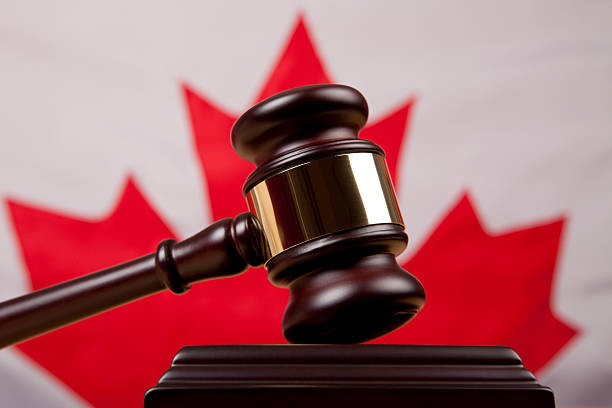Detention Review in Canada

Detention Review in Canada: A Comprehensive Guide
Detention review is a critical aspect of Canada's immigration and refugee system. It plays a significant role in ensuring that individuals who are detained under immigration and refugee laws are treated fairly and that their rights are protected. This comprehensive guide provides an in-depth overview of the detention review process in Canada, including its purpose, procedures, legal framework, and the rights of detainees.
1. Purpose of Detention Review in Canada
The primary purpose of detention review in Canada is to assess the need for continued detention of individuals who are subject to immigration and refugee processes. Detention may be necessary for various reasons, including flight risk, concerns about public safety, identity verification, or ensuring compliance with immigration or refugee proceedings.
2. Detention Review Legal Framework in Canada
Detention reviews in Canada are governed by both domestic and international legal frameworks. Key elements include:
A. Immigration and Refugee Protection Act (IRPA)
- The IRPA is the primary legislation governing immigration and refugee matters in Canada. It includes provisions related to detention, detention reviews, and the release of detainees.
B. Canadian Charter of Rights and Freedoms
- The Charter guarantees fundamental rights and freedoms to all individuals in Canada, including those subject to immigration and detention proceedings. It ensures that detainees have access to due process, legal representation, and protection against arbitrary detention.
C. International Agreements
- Canada is a signatory to international agreements such as the United Nations Convention Relating to the Status of Refugees and the Convention Against Torture and Other Cruel, Inhuman, or Degrading Treatment or Punishment. These agreements influence Canada's approach to detention and emphasize the protection of human rights.

3. Who Can Be Detained and need Detention Review in Canada
Detention in Canada can apply to various categories of individuals, including:
- Refugee Claimants: Individuals who arrive at the Canadian border and make a refugee claim may be detained if there are concerns about identity verification, security, or flight risk.
- Failed Refugee Claimants: Those whose refugee claims have been rejected may be detained pending removal from Canada.
- Foreign Nationals with Criminal Records: Individuals with criminal records may be detained if they are deemed a danger to the public or if their removal is imminent.
- Irregular Border Crossers: Those who cross the border outside official ports of entry may be detained, especially if they present identification or security concerns.

4. Detention Review Process in Canada
Detention reviews are conducted by the Immigration and Refugee Board of Canada (IRB), specifically by the Immigration Division (ID) or the Immigration Appeal Division (IAD), depending on the circumstances.
A. Initial Detention Review (48 Hours)
- When an individual is detained, an initial detention review must occur within 48 hours, excluding weekends and holidays.
- The reviewing officer considers factors such as the need for detention, risk to the public, flight risk, and alternatives to detention.
- Detainees have the right to be represented by legal counsel at this stage.
B. Subsequent Detention Review in Canada
- If an individual remains detained, subsequent detention reviews must be conducted regularly, typically every 30 days.
- Detainees have the right to legal representation at these reviews.
- The reviewing officer assesses whether continued detention is necessary and considers any changes in circumstances.
C. Review by the Immigration Appeal Division (IAD)
- Individuals can request a detention review by the IAD if their immigration or refugee status has been decided by the IRB.
- The IAD assesses the need for continued detention and considers factors such as the risk of non-compliance with removal orders.
D. Release
- Detainees may be released at any stage of the detention review process if it is determined that detention is no longer necessary or if conditions can be imposed to mitigate risks.

5. Rights of Detainees in Detention Review in Canada
Detainees in Canada have certain rights and protections throughout the detention review process:
A. Right to Legal Representation
- Detainees have the right to be represented by legal counsel at their own expense or, in some cases, provided with legal aid.
B. Right to an Interpreter
- If detainees do not understand or speak one of Canada's official languages (English or French), they have the right to an interpreter during detention reviews.
C. Right to Disclosure of Evidence
- Detainees have the right to access and review evidence used in their detention reviews, subject to security and privacy considerations.
D. Right to a Fair Hearing
- Detainees have the right to a fair and impartial hearing, including the opportunity to present evidence and make arguments.
E. Right to Challenge Detention
- Detainees can challenge the legality of their detention based on Charter violations, procedural errors, or changes in circumstances.
6. Alternatives to Detention Review in Canada
Canada recognizes alternatives to detention as a way to minimize the use of detention and ensure that individuals are not held in custody unnecessarily. Some alternatives include:
A. Reporting Requirements
- Individuals may be required to regularly report to immigration authorities instead of being detained.
B. Bail with Conditions
- Detainees may be released on bail with specific conditions, such as reporting requirements, residence restrictions, or financial deposits.
C. Community Supervision
- Community supervision programs may be used to monitor individuals in the community instead of detaining them.
7. Review of Conditions of Detention Review in Canada
If individuals are released with conditions, they have the right to review and challenge those conditions if they believe them to be unreasonable or unnecessary.
8. Length of Detention
Detention in Canada should be limited to the shortest reasonable period necessary. Prolonged or indefinite detention can be challenged on Charter grounds.
9. Vulnerable Detainees
Special considerations apply to vulnerable detainees, including minors, pregnant women, individuals with mental health issues, and those with certain medical conditions. Detention of vulnerable individuals is subject to additional safeguards.
10. Public Safety and Security
Detainees who pose a threat to public safety or security may be subject to different detention considerations, but their rights to due process and fairness are still protected.
Conclusion
Detention review is a crucial component of Canada's immigration and refugee system, ensuring that individuals subject to detention are treated fairly and in accordance with Canadian and international laws. It is designed to balance the need for immigration enforcement with the protection of human rights and the dignity of detainees.
Understanding the detention review process and the rights of detainees is essential for legal professionals, immigration officials, and advocates working within Canada's immigration and refugee system. It reflects Canada's commitment to upholding human rights principles even in the context of immigration and detention proceedings.
In case, if you need Help with Detention Review in Canada, admissibility hearings or other representations in Immigration and Refugee Board of Canada, please fill in Application below or contact us directly.

